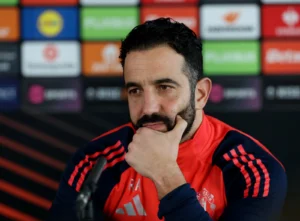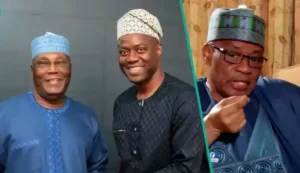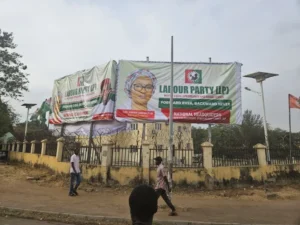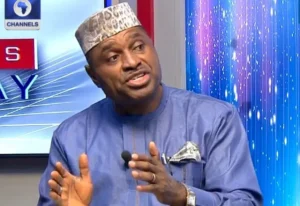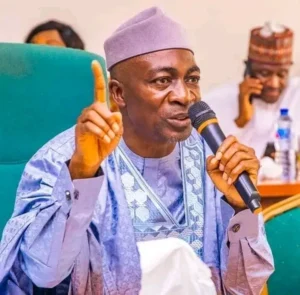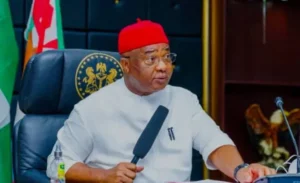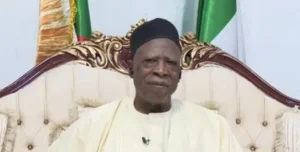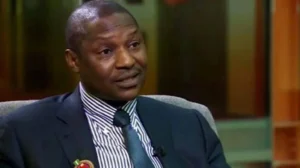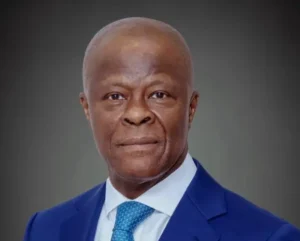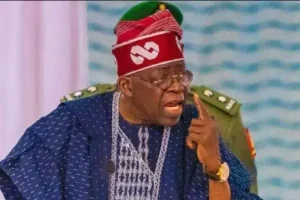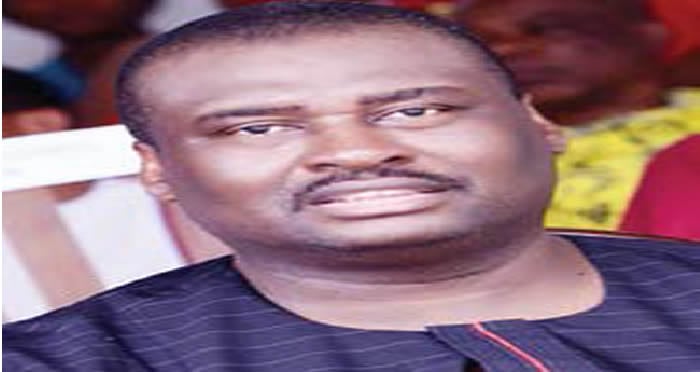
By the time I impatiently berthed the end of Chris Nehikhare’s latest attempt at political commentary, one thing became painfully clear: some people have no sense of irony. A former commissioner in a government that turned Edo State into a festival of crisis and opacity now attempts to lecture anyone on leadership, legality and governance. It would have been hilarious if it wasn’t so insulting.
Chris opened his piece with a dramatic flourish about Donald Trump and New York’s Mayor-elect, Zohran Mamdani—two Americans whose meeting has absolutely nothing to do with Edo State. But Chris needed something shiny and foreign to distract from the fact that he has nothing meaningful or credible to say. He has always struggled with original thought, so he does what he knows best: cut, paste, embellish and hope nobody notices the gaps. The whole thing read like someone who skimmed CNN for five minutes and decided he had discovered a metaphor.
But let’s not pretend his comparison was innocent. Chris was desperate to find a stage big enough to mask his smallness. He erected the White House as his moral backdrop because he knows that if he speaks plainly about Edo politics, he has no moral standing to anchor any argument. And he is right. He doesn’t. Not after the years he spent cheerleading for a government where transparency was an inconvenience and accountability was treated like a bad smell.
If Chris wants to talk about “undermining institutions,” he should start by looking in the mirror. He was part of an administration that wrapped its failures in grammar and called them reforms. The so-called “legacy projects” he defended with the enthusiasm of a hungry spokesperson have all aged into scandals. Ossiomo, Radisson Blu Hotel, the MOWAA project—each one was marketed to Edo people as a grand achievement. Today, every single one is under scrutiny, exposing layers of misrepresentation and state resources quietly funnelled into private pockets. These were the crown jewels of the government Chris served with chest-beating pride. Now the jewels are looking like costume jewellery bought in hurry to deceive a crowd.
Chris won’t write about that. He won’t write about how those projects collapsed under the weight of probes, disclosures, and hard facts. He won’t write about the gaps, the secrecy, the numbers that never added up. He won’t write about the insiders who walked away with the spoils while Edo people were left with debt, dust and disappointment. But he wants to talk about leadership? He wants to talk about institutions? He wants to talk about legality? Chris, please.
And since he brought morality into play, let’s remind him of one episode he has tried very hard to sweep under the carpet: the famous case of the government-owned Prado Jeep. A vehicle valued at around N100 million reportedly ending up in his hands for a paltry seven hundred and fifty thousand. A price so ridiculous that even scrap dealers would blush. Yet this is the same Chris who now climbs a moral pedestal to lecture an entire state. Anyone else would have a little shame before preaching virtue. But shame and Chris have never been close acquaintances.
These are not rumours. These are not whispers. They are documented, public, embarrassing facts that follow him like a shadow. And he knows it. Every time he picks up a pen to feign outrage, Edo people remember. He is the walking definition of selective morality—loud when attacking others, mute when his own backyard catches fire.
So when Chris tries to compare Edo’s situation to an Oval Office handshake, the comparison collapses under the weight of his own hypocrisy. Edo people are not fooled. They know the difference between a genuine critique and a man recycling his bitterness into yet another article. His piece is not about institutions. It is not about democracy. It is not about governance. It is Chris working overtime to stay relevant after the collapse of the political structure that once gave him cover.
The funny thing is that he accuses Governor Monday Okpebholo of “abuse of power” while never explaining which law, which constitutional provision, or which court ruling the governor violated. Details have never been Chris’ strong suit. He prefers sweeping statements because specifics would require him to be responsible for what he writes. And responsibility has never been part of his political vocabulary.
Meanwhile, Edo people are watching a governor who is cleaning up the mess that Chris and his former principals left behind. A governor who is confronting the empty files, questionable contracts and hollowed-out institutions inherited from the very people Chris defended until their failures became undeniable. This is the real context Chris hopes to distract from. It is why he flew all the way to Washington, D.C. in his imagination to borrow a story that has no bearing on Edo. When you have no argument, you borrow other people’s headlines.
This is the same Chris who, in office, handled every inquiry like a personal attack and treated every request for transparency like an inconvenience to be bulldozed. Now he wants to play guardian of democratic purity. A man who helped bury accountability for years suddenly remembers the rule of law once he is out of power? Chris, please sit down. Edo has moved on.
If he wants to write political commentary, he should start by being honest with himself. A man with his record cannot pretend to be the conscience of the state. He cannot wipe off years of complicity with one flowery article sprinkled with references from foreign news. Edo people deserve seriousness. What Chris is offering is comedy.
The truth is simple: Chris Nehikhare lacks the moral backbone to critique anyone’s leadership. Not after the government he served. Not after the projects he defended. Not after the deals that followed him out of office. Until he confronts his own history, every commentary he writes will sound like what it is—bitterness wrapped in bad writing.
So yes, Chris’s lessons from the Oval Office are noted. And, once again, completely dismissed.

